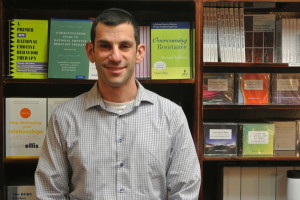by Josh Dredze, Psy.D.
We all have pet peeves. For some, it’s dishes in the sink, while for others it may be loud chewing. For me, it’s not offering an older or disabled person your seat on public transit. I realize this is a little more than a ‘pet peeve,’ but for me, it has become a more common occurrence of late.
I was recently heading uptown on the subway late one night from work and faced my pet peeve. I got onto a packed subway car where I found an older couple, with the woman sitting, but the man standing beside her without a seat. I immediately surveyed the train, scanning for an empty seat, but saw none. I then moved to assess other subway riders who may be amenable or suited to give up their seat. I scanned. Nothing. Some looked to be older or in need of seating themselves. But more of my focus was on the numerous, seemingly younger riders, plunged into their smart phones, too busy to even glance upward to see if anyone may require their seat. The subway pulled off and came to the next stop. Same routine. I looked around, searched for an empty seat, but only saw the same passengers steeped in social media and videos, not raising their head the slightest. I began to feel my frustration set in. And then the train came to 59th street. Surely someone would give up his or her seat, as the train would now be going express up to 125th street! Would this older man be forced to stand for the 70 block ride? Again, the doors opened, passengers entered, but no one offered their seat.
It was at this point when I felt my frustration boil over into anger. Come on! Give up your seat for just a couple stops and you don’t even have to leave your smartphone. People should not be this callous and insensitive! I shouldn’t be the only one who cares! As these demands rushed through my head, my anger only increased. What are people doing?!!
It was then when I recognized my transition from frustration to anger, and I recalled Dr. Ellis’s work on unhealthy emotions. Dr. Ellis noted that many of our emotions are unhealthy. Anger, anxiety, depression. Each of these emotions does us no good. However, he observed that for every destructive or “unhealthy” emotion, there is a healthy parallel. For anger, there is frustration. For anxiety, there is concern. For depression, there is sadness. Although unhealthy emotions are unproductive, healthy emotions can be adaptive and useful. For me on that subway ride, I observed my anger to be unhealthy. Not only was it distracting me from searching for a solution (a seat for this older passenger), but it was taking its toll on me mentally. I instead worked toward ratcheting down my anger to frustration, an emotion that would enable me to feel upset, while still focusing on finding a seat for this man.
While my pet peeve of seating for the disabled on public transit has not changed, my approach has. When I observe such incidents now, I remind myself that anger will not help me or the situation. I can change my thinking…while I would prefer that people be more sensitive and less callous on the train, there is no reason why they must. Focusing on how we can move our unhealthy emotions to healthier alternatives will not only allow us to better address our problems, but feel healthier emotionally.

